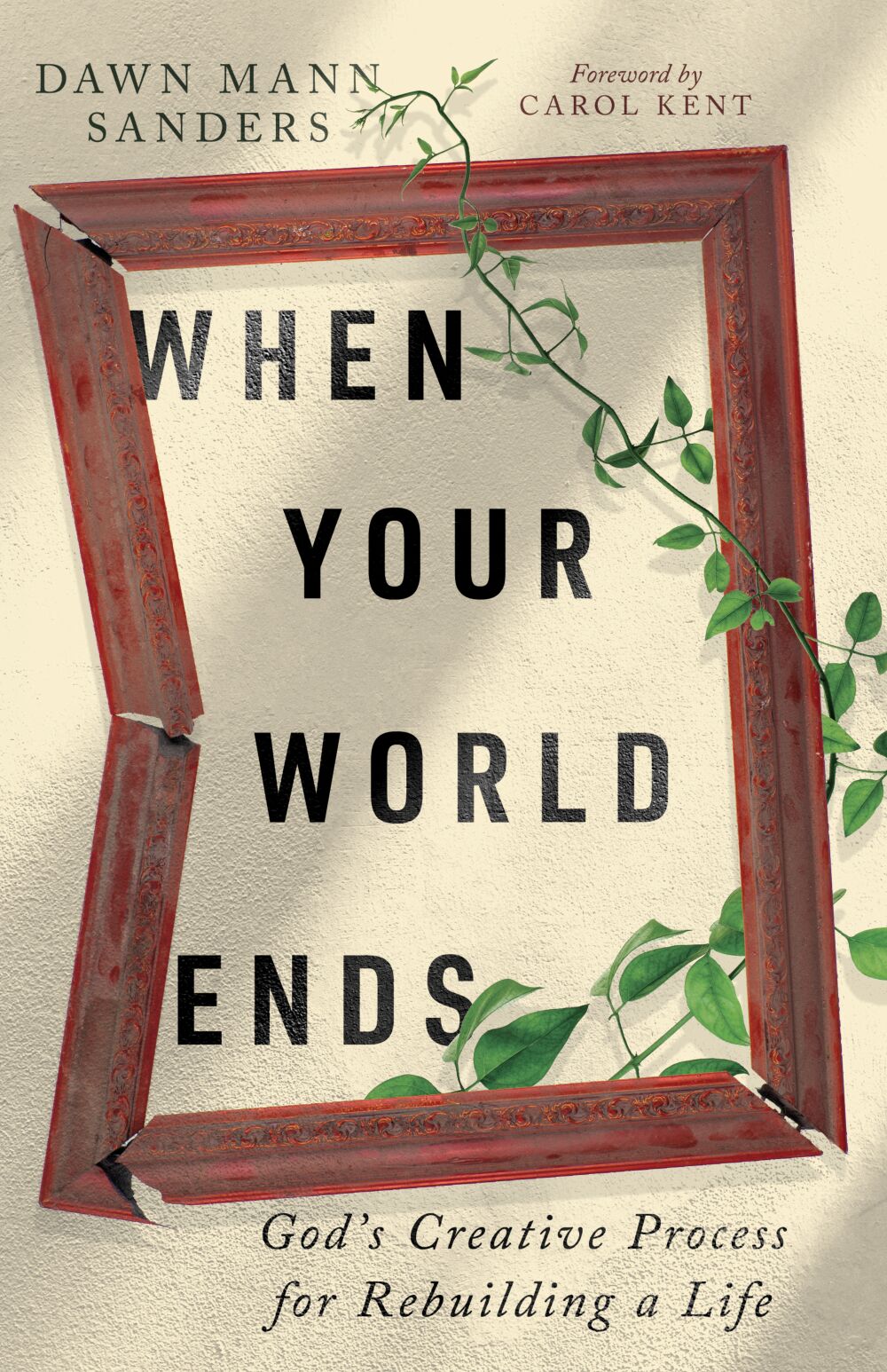Few people enter a relationship expecting it to end. For most people, the end doesn’t enter our minds until we hit a rough patch.
For me, Reggie was different. Oh, we had disagreements, but ending our relationship was never a viable option. In fact, I remember discussing our first disagreement with a friend. Seeing my frustration, my friend sighed, then said, “Oh no, I thought he was the one. I guess I was wrong.”
Few people enter a relationship expecting it to end. Share on XI probed a little deeper and learned my friend thought I was going to break up with Reggie over this disagreement, but that thought was the furthest thing from my mind. As a matter of fact, her suggesting a breakup left me feeling lost and empty. Neither feeling motivated me to ever want to end things with Reggie—far from it. Thankfully, the feeling was mutual.
For Reggie and I, divorce wasn’t an option. As we used to say, “We’re just going to have to work this thing out.” And we did.
Every relationship in this life ends. Every relationship will end because all of our lives will one day end. Death is a certainty.
Our relationship was so good I never really entertained the idea of it ending—until he died.
Reggie’s death reminded me of one of life’s certainties: Every relationship in this life ends. Every relationship will end because all of our lives will one day end. Death is a certainty.
Part 12 of Choosing Wisely
Several weeks ago, we began a series on decision making when creating our new lives using Genesis 2:15-17, which contains the first choice God gave to humanity, the choice of selecting our food. It makes sense that the food we eat—what we consume—plays a part in whether we live or die.
Then the Lord God took the man and put him in the garden of Eden to tend and keep it. And the Lord God commanded the man, saying, "Of every tree of the garden you may freely eat; but of the tree of the knowledge of good and evil you shall not eat, for in the day that you eat of it you shall surely die."
~ Genesis 2:15-17
Today’s discussion on death is part 12 of our series. In today’s discussion, we take a deeper look at the role our choices play in whether we live or die.
Adam’s Position in the Garden
As I was when studying the verbs in verse 15, I was struck by the spiritual nature of the verbs in verse 17. As I mentioned earlier in this series, the first thing God did with Adam after creating him was take him. The Hebrew word translated “took” in verse 15 means “to be taken in marriage,” as in “I take thee…” in the traditional wedding vows. In other words, not only did God change Adam’s position physically, when God “took” Adam, God changed Adam’s position relationally and spiritually. When God took Adam, God entered into a spiritual relationship with him.
When God took Adam, God entered into a spiritual relationship with him.
God offers us the same opportunity when He offers Christ to us. When we receive Jesus Christ as our Savior, we enter a spiritual relationship with Them.
When we receive Jesus Christ as our Savior, we enter a spiritual relationship with Them. Share on XThe second thing God did with Adam after creating him was “put” Adam in the Garden of Eden.
The Hebrew word translated “put” in this verse means “rest” in the sense of remaining in one place. This is the same meaning as the Greek word translated “abide” in John 15:4:
Abide in Me, and I in you. As the branch cannot bear fruit of itself, unless it abides in the vine, neither can you, unless you abide in Me.
We see from these verses that God’s original intent for humanity was to remain in the garden and in relationship with Him. Just as God intended for man to remain in the garden physically—at least for the time being because that is where man’s food was, God intended for man to remain in a spiritual relationship with Him too.
We see from these verses that God’s original intent for humanity was to remain in the garden and in relationship with Him.
The only thing that could change man’s position—physically or spiritually—would be his death.
Death simply means separation. Physical death occurs when the soul separates from the body. Spiritual death occurs when the soul separates from God. Needless to say, separation from God has a greater significance.
Spiritual Death
I don’t think it is a coincidence that immediately after God entered into a spiritual relationship with Adam, God instructed Adam on how to maintain that relationship. Immediately following entering into a spiritual relationship, God instructed Adam on how not to sin—because sin is the only thing that can cause spiritual death and separate us from God.
Sin separates us from God because sin would leave us impure—what the Bible calls “unclean.” God is pure. By nature, what is pure and what is impure cannot reside together. They must be separate. In other words, God and His purity cannot be defiled by what is impure. Again, they must be separate.
Sin is the only thing that can cause spiritual death and separate us from God. Share on XFurthermore, biblically speaking, to be “unclean” speaks to a person’s or object’s spiritual condition or state. That which is “unclean” is unfit for worship.
As with the first two verbs in verse 15, took and put, the second two verbs—tend and keep—in the verse also have a spiritual nature. Only this time, rather than speaking to position, these two verbs speak to worship.
In verse 15, the verbs translated “tend” and “keep” mean “to worship and serve the Lord” and “to obey the Lord’s commands,” respectively. This means whatever actions Adam performed in tending and keeping the garden were to be done in worship and service to the Lord, and in obedience to His commands.
The moment he sinned, Adam surely died because his soul separated from God immediately.
So, if Adam sinned, his disobedience would leave him unfit to worship and serve the Lord God. As a result, Adam would die because, at the point of sin, his soul would separate from God—regardless of the time in which his soul separated from his body.
Adam’s body obviously died at a later date, but the moment he sinned, Adam surely died because his soul separated from God immediately.
The Edenic Covenant
Though spiritual death occurred immediately, God gave Adam time—time to make a decision—a life or death decision. The outcome didn’t come without a decision. Adam had a choice in the matter.
The choice God gave Adam in the garden is the heart of the Edenic covenant—the first covenant between God and man. Biblically speaking, a covenant is a binding agreement or relationship between two or more parties—often sealed with blood. Legally speaking, a binding agreement is a contract, but biblically it’s a formalized agreement based on a change in relationship where one or both parties promise to perform or abstain from performing specific actions.
Now, the choice is yours. God has given you the power to choose how and where you spend eternity. Will you choose eternal life? Will you create an(other) extraordinarily good life? Share on XIn the Edenic covenant, God promised to provide. He promised to provide food, which equated to continued life. As with Moses and the children of Israel in the wilderness after delivering them from bondage, the Lord God set before Adam—and later Eve—life and good versus death and evil (Deuteronomy 30:15). All they had to do was choose life. The choice was theirs.
Now, the choice is yours. God has given you the power to choose how and where you spend eternity.
Will you choose eternal life? Will you create an(other) extraordinarily good life?
Guidelines for Death
So, we end our series with these guidelines based on the separation of spiritual death in Genesis 2:17:
Guideline 22: Choose the covenant—a spiritual relationship with God the Father through His Son Jesus Christ.
Guideline 23: Choose obedience—the position for the good life.
Guideline 24: Choose eternity—the power to choose for an(other) extraordinarily good life.
The “Choosing Wisely” Series:
- Part 1a – Choosing Wisely
- Part 1b – Getting to the Root
- Part 1c – Fueling Your New Life
- Part 2 – A Habitat for Humanity
- Part 3 – The Order of Rest
- Part 4 – The Right Conditions for Rest
- Part 5 – What’s the Best Decision-Making Process for Creating New Lives?
- Part 6 – Five Freedoms When Creating a New Life
- Part 7 – The Risks of Giving Into Temptation
- Part 8 – How Knowledge Plays in Decision Making
- Part 9 – How Morality Applies to Decision Making
- Part 10 – Biblical Concepts of Time When Making Decisions
- Part 11 – Some Certainties We Have in This Life
- Part 12 – How Will Your Relationship End?
COMPLETE LIST OF GUIDELINES
Guideline #1: Choose activities that align with our assignments.
Guideline #1a: The availability of activities that align with our new lives depends on the level of effort we put into completing our assignments.
Guideline #2: Choose activities that support our assignments.
Guideline #3: Choose activities that provide what our lives and assignments need to live, grow, and stay healthy so that we can produce the best fruit.
Guideline #3a: Choose activities that balance the things related to our assignments that we want to do with the things related to our assignments that we need to do.
Guideline #4: During seasons of plenty, choose activities that for seasons of scarcity by storing excess resources.
Guideline #5: Choose activities that are fueled or empowered by the Son.
Guideline #5a: Choose activities that are fueled by clean energy—energy that doesn’t pollute the environment and has a positive impact on the environment by counteracting the pollution produced by “dirty energy.”
Guideline #5b: Engage in activities that are fueled by renewable energy—energy that is never depleted or is constantly replenished.
Guideline #5c: Choose activities that are fueled by universal energy—energy that is accessible anywhere.
Guideline 6: Choose activities that worship and serve the Lord.
Guideline 7: Choose activities that obey the Lord’s commands.
Guideline 8: Choose activities that are enjoyable and satisfying.
Guideline 9: Choose to complete activities in order.
Guideline 10: Choose to rest before beginning your assignments.
Guideline 11: Choose to rest your new life on a solid, unchanging foundation.
Guideline 12: Always start with God.
Guideline 13: Choose the best option.
Guideline 14: Choose activities that allow you to maximize your power and influence.
Guideline 15: Weigh the risk before choosing an option.
Guideline 16: Pay attention to your Father’s instructions to know understanding.
Guideline 17: With all your getting, get understanding.
Guideline 18: Choose activities that lead you away from evil and towards good.
Guideline 19: Complete activities at the right time.
Guideline 19a: Complete activities using the right time.
Guideline 19b: Follow the Spirit to identify the right time.
Guideline 20: Choose to trust God to provide for you.
Guideline 21: Have confidence that any boundaries God gives you are to protect, not limit you.
Guideline 22: Choose the covenant—a spiritual relationship with God the Father through His Son Jesus Christ.
Guideline 23: Choose obedience—the position for the good life.
Guideline 24: Choose eternity—the power to choose for an(other) extraordinarily good life.







